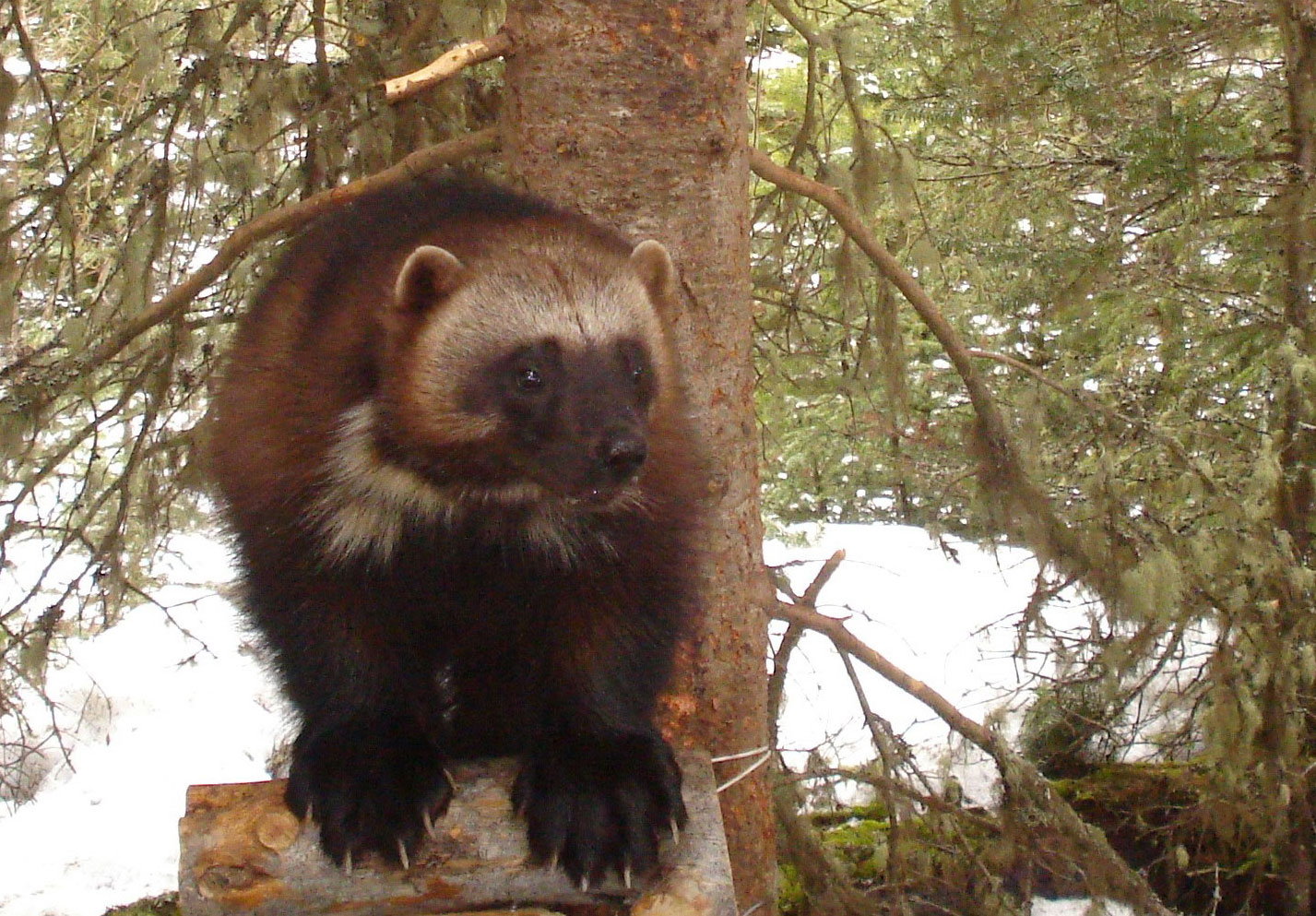(CN) — Moving to withdraw previously proposed protections for the estimated 300 wolverines left in the United States, federal officials announced Thursday that the species is not facing as significant a threat from climate change as once thought.
The announcement triggered immediate pushback among conservation groups, a coalition of which issued a notice of intent to sue U.S. officials when the rule is made official in the Federal Register.
"We saw the science that they're basing this on, but they are cherry picking the science that supports their decision to withdraw protection and ignores research showing that climate change is actually impacting snow levels that [wolverines] need to den and survive," Andrea Zaccardi, a senior attorney with the Center for Biological Diversity, said in an interview this afternoon.
U.S. Fish and Wildlife officials cited the new research in an posted on the agency’s website that says American Northwest wolverine populations are stable and traveling up to and from the Canadian border in search of deep snow, which they rely on to make dens for their young. The factors affecting wolverine populations “are not as significant as believed in 2013 when the service proposed to list the wolverine found in the contiguous United States as threatened,” according to the post.
“In the time since our original proposal, the science on wolverine has been greatly advanced thanks to the work of state wildlife agencies and researchers in the U.S. and around the world,” Noreen Walsh, regional director for the Service, said in a statement Thursday.
The species does not meet the requirements to be listed as threatened or endangered under the Endangered Species Act, the service said.
But Zaccardi said the agency’s evaluation that the species’ prevalence is stable because the animals are traveling further north is not meaningful.
“Wolverines need very deep snowpack levels to den and reproduce and so as snowpack levels have gone down, increasingly, every year with climate change for the last decade, wolverines have less and habitats to actually den,” Zaccardi explained. “If anything, they might be being pushed further north because they’re losing snowpack levels, and so they're going north to find colder temperatures and more snow. But I don't think that means their range is expanding, to me that means they're actually being displaced from habitats where they would normally live.”
Wolverines are the largest land-dwelling members of the weasel family, weighing anywhere from 20 to 55 pounds. While populations in the U.S. once reached as far as New Mexico and Southern California, trapping and poisoning practices nearly killed off the species by the 1930s. Populations are found today in high regions of Washington, Montana, Idaho, Wyoming, Utah, Colorado, California and Oregon, as well as the arctic and subarctic regions of Alaska and western Canada. According to Fish and Wildlife, more than 90% of their suitable habitat is located on federally owned public lands and wilderness areas. The agency did not provide an updated population estimate for wolverines Thursday, but previous estimates put the U.S. population between 250 and 300.
Zaccardi noted that a federal court in Montana, in 2016 previously determined that lifting protections for wolverines ignored climate science and that it is likely a court will see it the same way in the future.
“The federal government is just once again ignoring climate change science to deny wolverines protection,” Zaccardi said.
Other environmental groups in the coalition are Earthjustice, Conservation Northwest, Defenders of Wildlife, Friends of the Clearwater, Idaho Conservation League, Jackson Hole Conservation Alliance, Klamath-Siskiyou Wildlands Center, Greater Yellowstone Coalition and Rocky Mountain Wild.
Subscribe to Closing Arguments
Sign up for new weekly newsletter Closing Arguments to get the latest about ongoing trials, major litigation and hot cases and rulings in courthouses around the U.S. and the world.








